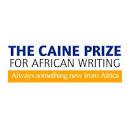Call for Submissions ~ The Caine Prize for African Writing

The Caine Prize for African Writing is open for submissions for 2020. The deadline to enter is the 31 st January 2020. The prize is awarded to an African writer of a short story in English. To enter please send six original published copies of the work for consideration to the Caine Prize office including a publisher’s letter detailing your author's qualifying nationality, word count, as well as the title of the story, year of publication and title of publication. The Award There is a cash prize of £10, 000 for the winning author and a travel award for each of the shortlisted candidates (up to five in all); the shortlisted candidates will also receive a prize of £500. Full details on how to enter can be found at http://caineprize.com/how-to-enter - please send any queries to: info@caineprize.com Eligibility Unpublished work is not eligible for the Caine Prize Submissions should be made by publishers only




